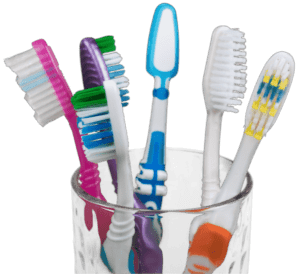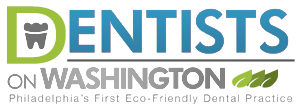Are Electric Toothbrushes Better Than Manual Brushes?
With so many dental care products on the market, it’s hard to make the right choice; even for toothbrushes. And although both electric and manual toothbrushes are very efficient in dissolving plaque that causes cavities and infections, the question remains which is better
The results of recent studies may provide some answers. Read on to learn more about the pros and cons of manual and electric toothbrushes, and to find out which one ultimately works best.
Electric Toothbrushes Pros

Research has shown that electric toothbrushes are better at keeping your teeth healthy than manual toothbrushes.
The bristles of an electric toothbrush vibrate or rotate to remove plaque from your teeth. Each time you brush your teeth, you make more micro-movements thanks to the vibration. Brushes with rotating brush heads or oscillating heads are especially good at removing plaque.
Electric toothbrushes offer a whole range of benefits, including:
It Is Easier For People With Limited Mobility
It’s easy to brush your teeth with electric toothbrushes since they do most of the work for you. Therefore, they can be helpful for anyone with limited mobility, including
- Carpal tunnel
- Arthritis
- Developmental disabilities
- Parkinson’s
Have Built-in Timers
According to the American Dental Association (ADA), it is recommended that you brush your teeth for two minutes in the morning and two minutes in the evening. While you are free to brush more often if you wish, the 2/2 rule is the minimum for healthy teeth and gums. If you brush your teeth with an electric toothbrush, the timer can ensure that you brush long enough to remove plaque.
May Cause Less Waste
Usually, with an electric toothbrush, you only have to replace the head when it’s time, and that’s less wasteful than throwing the whole thing away.
A disposable common manual toothbrush, on the other hand, must be disposed of completely when it’s time to replace it.
Its Best For People With Orthodontic Appliances
For people with orthodontic appliances, such as braces, electric toothbrushes are particularly helpful because they make brushing teeth much easier. A manual toothbrush cannot get into all the little nooks and crannies with braces.
Fun For Kids
Every child is different when it comes to brushing their teeth. However, it may be easier for your child to brush their teeth and develop lasting healthy oral habits if an electric toothbrush is more appealing to them.
Better For Seniors
Older people benefit from electric toothbrushes because they are easier to grip. They are also easier to use thanks to vibrations that reduce the need for vigorous arm and hand movements. Electric toothbrushes are especially beneficial for people with arthritis.
Safe For Your Gums
A recent study found that those who use electric toothbrushes have better gum health. There is a direct correlation between gum conditions and cardiovascular diseases such as heart attack, high blood pressure, diabetes, stroke, and more. The bacteria in gum pockets enter the bloodstream and cause inflammation throughout the body. Inflammation and bleeding in the gums can be significantly reduced with an electric toothbrush, as these tools are more efficient.
Brushing Customizability
Electric toothbrushes have a variety of settings and modes that allow you to customize your brushing experience. With their different modes, they allow you to brush at your own pace. Your electric toothbrush may have a gentler mode if you have sensitive teeth. You do not have this option with manual toothbrushes.
Electric Toothbrushes Cons
Electric toothbrushes are safe to use. Nevertheless, electric toothbrushes, like everything else, have some drawbacks, including
Cost More Than Manual
Compared to manual toothbrushes, they are more expensive. Electric toothbrushes range in price from $15 to $250. In addition, replaceable brush heads typically cost between $10 and $45 and come in multiple packs. Single-use electric toothbrushes cost between $5 and $8, plus batteries.
Also, not all stores carry the right replacement brush heads, and you may not find the right brand at your local store. Shopping online may be convenient for some, but it’s not the best choice if you need a new head right away. Buying in bulk will allow you to have enough to last a year or more, but the price will rise.
Not Suitable After Dental Surgery
As with any rule, there are some exceptions. For a few weeks after dental surgery, you may need a special toothbrush. According to a new study published in Scientific World Journal, using a soft manual toothbrush is the most comfortable way to recover from dental surgical treatments.
Manual Toothbrushes Pros

Manual toothbrushes have been around for a long time. You can use them to prevent gum disease and clean your teeth, even though they don’t have all the bells and whistles that electric toothbrushes offer. Here’s what manual toothbrushes have to offer:
Accessible
You can buy a manual toothbrush almost anywhere, including grocery stores, gas stations, dollar stores, and pharmacies. Also, manual toothbrushes do not need to be charged, so you can use them anytime, anywhere.
Affordable
Compared to electric toothbrushes, manual toothbrushes are less expensive. The price of a manual toothbrush ranges from $1 to $3, depending on the brand. Moreover, there is no additional cost to you as manual toothbrushes do not require batteries or power supplies.
Manual Toothbrush Cons
In addition to the limited but reliable advantages offered by this old-fashioned tool, there are also some drawbacks, including:
Hard To Use
One study found that people who use a manual toothbrush tend to brush too hard compared to an electric device. This can hurt your gums and teeth. Also, since manual toothbrushes don’t have a built-in timer, it can be difficult to determine if you’re brushing long enough.
Miss The Hard-to-reach Spots
When you buy a manual toothbrush, you should choose a compact brush head to make sure you brush your teeth well. Compared to electric ones, manual toothbrushes overlook hard-to-reach areas. Remember that a good technique, regardless of the choice of device, wouldn’t be complete without flossing.
Are Electric Toothbrushes Better?
Now that we have learned all essentials about electric and manual toothbrushes, it is time to answer the million-dollar question: Is one better than the other?
According to some studies, people who use electric toothbrushes have healthier gums, less tooth damage, and keep their teeth longer than those who use manual toothbrushes. A beautiful smile can be ensured by choosing the right electric toothbrush!
Bottom Line
For centuries, people have been brushing their teeth in one way or another. Toothbrushes with nylon bristles were first introduced to the market in 1938, while electric toothbrushes were invented decades later. Do electric toothbrushes work better than manual toothbrushes? In a word, yes! However, many factors come into play when choosing the right dental care plan. To find out which toothbrush and dental care plan is right for you, schedule an appointment or contact us, here at Dentists on Washington today! It’s never too late to start taking care of your teeth.





Comments are closed.